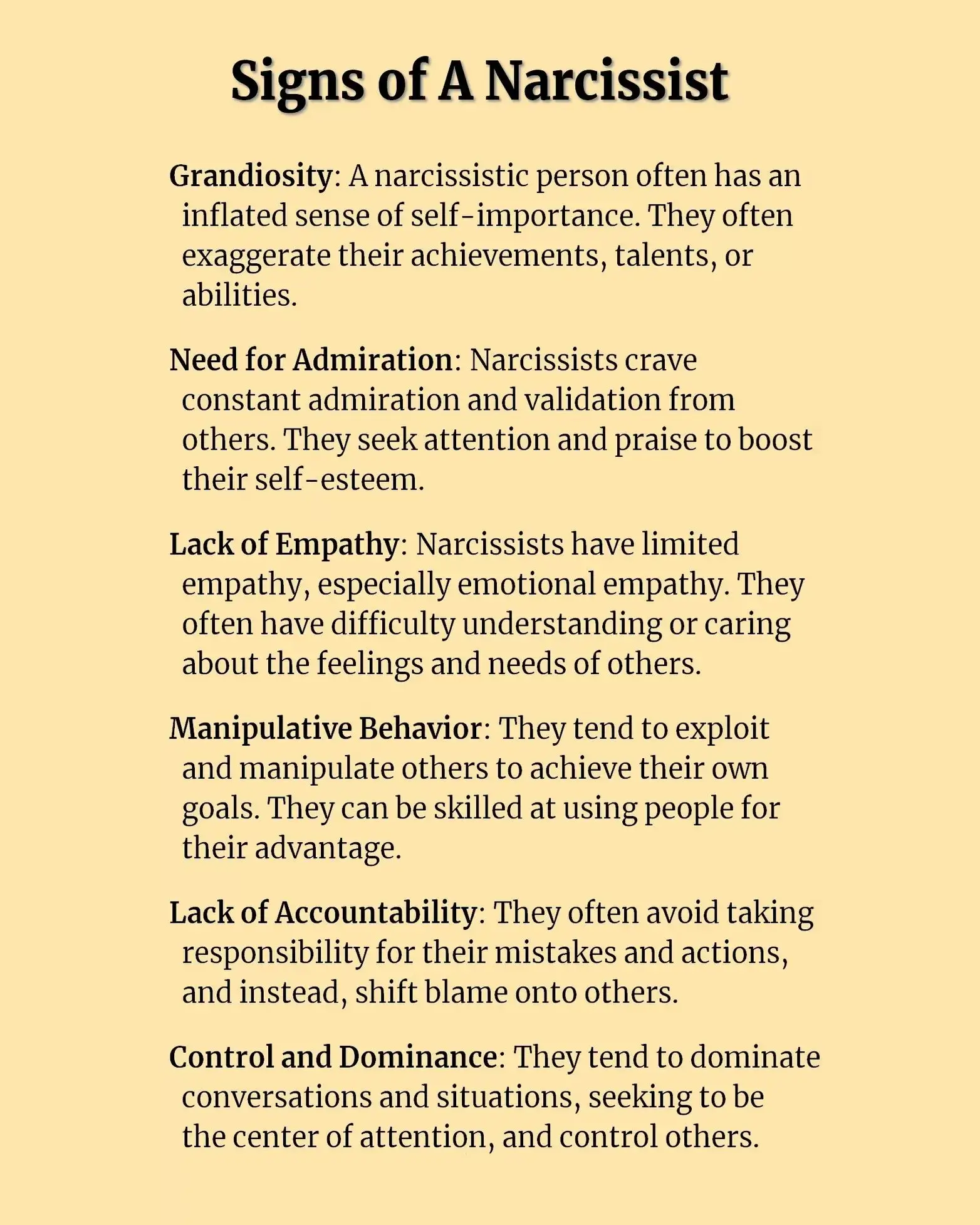— Researched and written by Dr. Sandip Roy.
Narcissistic husbands can make their wives feel unloved, insignificant, and alone. You often wonder why you’re still with him, and question your own sanity.
If you are their wife or girlfriend, we realize how difficult it is to live with such a controlling and volatile person.
They can get angry and abusive when they don’t get attention and praise. Worse, they can make you feel like you deserve their abuse.
There is no way to cure dark personality disorders like narcissism and psychopathy.
3 takeaways:
- Narcissism is a personality disorder marked by an inflated sense of self-importance, a deep need for admiration, and a lack of empathy for others.
- A narcissistic husband believes they are superior in their relationship, demands constant attention and validation from their wife, and cannot respond compassionately to their wife’s needs.
- A therapist can help you regain your mental well-being, resilience, and willpower if you deal with a narcissistic husband.
Ten Signs of A Narcissistic Husband
Narcissistic husbands, especially male narcissists, can be dangerous people to have a relationship with. They can cause long-lasting, severe physical and emotional trauma to the victim-wife.
One subtle sign is that they find it extremely hard to utter “Sorry.” They’d rather kill a crocodile than torture themselves for a sincere apology.
These are the 10 telltale signs of a narcissistic husband:
1. They Can Get Violent To Manipulate You.
Narcissistic husbands try to keep their wives under their control by using several manipulation tactics, starting with love bombing.
Then they use gaslighting, guilt-tripping, or blame-shifting.
When you resist or stop reacting to their insults, they may use psychological violence and physical cruelty.
A violent narcissist is a frustrated-angry person who has failed at their attempts to control you. Violence is their last resort.

Even if there isn’t actual violence, the constant feeling that something bad might happen can create a toxic home environment.
- The victim-wife feels constantly on edge, second-guessing herself, and struggling to assert her own needs and feelings.
- She can simply shut herself down, deeply damaging her self-trust, her ability to share her opinions, and even smile or laugh at her will in the relationship.
Why do narcissists do it? Because if they control you, they can get away with their worst wrongdoings without being held responsible.
2. They Always Show A Sense of Entitlement.
Entitlement means the perceived right to have something. Narcissists believe they are special and therefore entitled to special treatment.
Narcissistic husbands think their wives should treat them like royalty and put their own needs ahead of theirs.
They expect unquestioning compliance with their demands and expectations, and may become upset if they are not.
They may also struggle with boundaries, feeling entitled to do whatever they want without considering their partner’s feelings.
This sense of entitlement often manifests in manipulative behaviors that can have a significant impact on the spouse and the relationship.
3. They Lack Empathy (But Fake Being Empathetic).
A narcissistic husband finds it difficult to understand the feelings of his wife, even when she shares her concerns.
He isn’t too concerned with his wife’s problems and doesn’t want to take care of her physical and emotional needs.
If you notice, such a person also does not share his vulnerabilities, losses, and acts of stupidity with his closest ones. He feels it would be like giving them the ammunition to use against him in the future.
This lack of empathy can lead to insensitive behavior and difficulty forming meaningful, emotional connections.
It’s more than just being out of touch; it’s a fundamental inability to recognize and respond to the feelings and needs of others, especially their wife.
This emotional void can create a cold and distant relationship where the wife feels unheard and unimportant.
Over time, the lack of empathy can erode trust and mutual respect, leading to a breakdown in communication and intimacy within the marriage.

4. They Exploit Others (And You) For Personal Gain.
Narcissistic husbands often manipulate their wives to get what they want, viewing them more as a means to an end rather than a partner to be cherished.
They may use emotional blackmail, gaslighting, or other tactics to control their wife, bending her will to meet their own needs and desires.
This can include exploiting her emotions, finances, or even her relationships with friends and family.
They may also try to isolate their spouse from friends and family, making it harder for her to leave the relationship or seek support.
This isolation is often a calculated move to increase dependence and make the wife feel trapped.
The exploitation of others for personal gain is not just a one-time event; it’s a consistent pattern.
It reveals their lack of empathy and a willingness to put personal gain above the well-being of others, especially the wife.
It’s a red flag of a narcissistic husband and a clear pointer that the marriage is unhealthy and damaging.
5. They Have A Unrealistic Sense of Self-Importance.
Narcissistic husbands have a grandiose view of themselves.
They see themselves as superior and believe they are unique and special.
This exaggerated sense of self-importance often leads to arrogance and a disregard for the feelings and needs of others.
They are self-centered, entitled, lack empathy, and have a grandiose view of themselves.
These traits often manifest in manipulative behaviors that can have a significant impact on the spouse and the relationship.
6. They Fantasize About Being Successful & Powerful.
Narcissistic husbands often fantasize about achieving great success, having immense power, or being exceptionally attractive.
These fantasies can be so consuming that they lose touch with reality. It’s not just daydreaming; these fantasies can become a central part of their identity and how they present themselves to the world.
They may expect their wife to support and even participate in these illusions, leading to unrealistic expectations and demands within the relationship.
If challenged or faced with reality, they may react with anger or denial, refusing to acknowledge any gap between their fantasies and real life.
This preoccupation can create a disconnect with those around them, including their wife, and lead to dissatisfaction and frustration within the marriage.
7. They Are Envious/Jealous of Others (Even You).
Narcissistic husbands often feel envious when others achieve success or receive attention, including their own wives.
They may become resentful or try to undermine others’ achievements.
This envy can show itself as indirect hostile remarks, attempts to belittle the achievements of others, or even outright aggression.
They also feel threatened by their wife’s friendships or personal achievements, not just by her professional or material success.
This behavior can create tension and conflict within the relationship, making it challenging to celebrate successes openly and honestly.
8. They Always Seek Admiration & Validation.
A narcissistic husband is constantly in search of validation and praise from others.
They feed off compliments and can become upset or even angry when they don’t receive the admiration they believe they deserve.
This relentless need for attention and validation can leave you, as their spouse, feeling neglected and unimportant.
It’s like walking on eggshells, never knowing what might trigger your partner’s anger next.
This constant state of tension can lead to anxiety, depression, and other mental health issues.
9. They Lie Frequently, Reasonlessly.
Narcissistic husbands may frequently lie or exaggerate to make themselves appear better or more important. They may also lie to manipulate situations in their favor.
These lies can range from small embellishments to significant deceptions and are often aimed at maintaining a certain image or control within the relationship.
The lying might extend to their interactions with friends, family, or colleagues, creating a web of deceit that can become difficult to maintain.
Over time, this pattern of dishonesty can erode trust and create a profound disconnect between the husband and wife, leading to a strained and unhealthy relationship.
10. They Cannot Easily Handle Criticism.
Narcissistic husbands often react poorly to criticism. They may become angry, defensive, or even aggressive when their flaws are pointed out.
Being married to a narcissistic husband can be emotionally draining.
Narcissist husbands drain you emotionally, mentally, and even physically.
“Narcissists are like vampires. They need to feed off of your energy,” says Dr. Ramani Durvasula, a clinical psychologist, professor of psychology, media expert, and author.
If you notice any of these signs in your husband, it is important to seek help and support.
Further Reading: Mental health of Asian Indians: Relevant issues and community implications, Durvasula & Mylvaganam, 1994.
Dealing with a Narcissistic Husband
Dealing with a narcissistic husband is difficult and stressful because of these reasons:
- Narcissistic husbands never apologize or offer fake apologies.
- They struggle with reciprocating love, intimacy, vulnerability, and empathy.
- They are often robotic in connecting with their partner on an emotional level.
- They violate their wife’s boundaries and personal space, feeling entitled to do whatever they want without considering her feelings.
Role of Mental Health Consultation
Seeking professional help can give you the tools and strategies to cope with the emotionally draining and overwhelming situation.
A mental health consultation can help you to:
- Understand the dynamics of a narcissistic relationship
- Learn how to set boundaries
- Develop coping strategies
- Improve communication skills
- Build self-esteem and confidence
A mental health professional can also help you determine if your husband has a narcissistic personality disorder and provide you with his treatment options.
Setting Boundaries
Setting boundaries is an unignorable part of dealing with a narcissistic husband.
The first rule is to give them in writing what are your boundaries and get them to agree to stick to them.
Some tips for setting boundaries include:
- Identify your limits and communicate them clearly
- Be assertive and firm, and get them to repeat it
- Avoid engaging in arguments or power struggles
- Seek support from friends and family
- Practice self-care and prioritize your own needs
If you find your narcissist husband repeatedly breaking your boundaries, seek support from friends and family.
Always prioritize your own well-being and seek professional help whenever you feel overwhelmed.
Related Posts:
- How To Respond To Narcissistic Hoovering (What To Do After)
- 7 Satisfying Ways To Get Revenge On A Narcissist
- How To Force A Narcissistic Breakdown (Stages Of Collapse)
Understanding Narcissism
Narcissism is a personality disorder characterized by an inflated sense of self-importance, an excessive need for admiration, and a lack of empathy for others.
Narcissistic Personality Disorder (NPD), its diagnosed and more severe version, is a mental health condition that falls under the category of personality disorders in the DSM-5.
According to research, NPD affects approximately 6.2% of the general population.
Dr. D. Ramani, a clinical psychologist and expert on narcissism, says, “Narcissists are experts at making you feel like you’re the problem.”
That quote highlights the narcissistic gaslighting and manipulation they use to control their victims. This can be very confusing and disorienting, and it can make it difficult to trust your own judgment.
They may make you feel like you’re crazy, or that you’re the one who is always wrong.
FAQs
1. What are some red flags that indicate a husband may be a narcissist?
Some red flags that indicate a husband may be narcissistic include:
- They have a superlative view of themselves and a sense of entitlement.
- They have a tendency to criticize their wife and can do so even in front of others.
- They lack empathy, sometimes to the point of being insensitive to life-endangering conditions.
- They crave constant attention and can exploit his wife to make her praise them privately and publicly.
- Narcissist husbands are often preoccupied with fantasies of unlimited success, power, brilliance, beauty, or ideal love.
2. What are some common behaviors of a narcissistic husband?
- They Act Without Empathy: Show little or no concern for their wife’s feelings or well-being.
- They Manipulate Their Wife: Use deceit, charm, gaslighting, or coercion to get her to comply.
- They Lie Frequently to Their Wife: Whether about big issues or small details, dishonesty is common.
- They Display Shallow Emotions Toward Their Wife: They might feign emotions but often lack genuine feelings.
- They Seek Power and Control Over Their Wife: They may exert control over her life, including finances, social interactions, and daily decisions.
- They Lack Responsibility in the Relationship: Often refuse to take responsibility for actions or blame their wife for mistakes.
- They Engage in Risky Behavior: This can include reckless actions without regard for how it affects their wife.
- They Show a Lack of Remorse Toward Their Wife: They may feel no guilt or regret even after hurting her.
- They Can Be Charming and Charismatic to Their Wife: They often use charm to manipulate and win her over.
- They Isolate Their Wife: They may try to cut her off from friends and family, creating a sense of dependency.
- They Can Be Violent or Threatening to Their Wife: Physical intimidation or violence might be used to control her.
- They Focus On Their Own Needs Often prioritize their desires and needs over those of their wife.
These behaviors can lead to a destructive and unhealthy relationship.
3. How can a narcissistic husband affect a marriage?
- A narcissistic husband can be emotionally and physically abusive.
- Narcissistic husbands are also unwilling to compromise on their demands.
- They tend to control their wife, often pushing them into social isolation to this end.
- The wife can suffer from anxiety, rumination, loneliness, low self-worth, and depression.
- They put their own wants and needs above those of their wife and can punish her if she doesn’t meet their expectations.
- This can lead to a breakdown in communication and intimacy, and may ultimately lead to the dissolution of the marriage.
4. What are some warning signs of a toxic relationship with a narcissistic husband?
The warning signs of a toxic relationship with a narcissistic husband include:
- Emotional Abuse: Constant belittling, humiliation, or making you feel worthless.
- Manipulation: Using deceit or coercion to control you or the situation.
- Lack of Empathy: Showing little or no concern for your feelings, needs, or well-being.
- Physical Punishments or Threats: Any form of physical harm or intimidation.
- Extreme Control: Overly controlling behavior, such as monitoring your whereabouts, dictating what you wear, or isolating you from friends and family.
- Self-Centered Behavior: A sociopathic husband may prioritize his own needs and desires over yours, without regard for how it affects you.
- Breakdown in Communication and Intimacy: The relationship may lack trust, open communication, and emotional connection, leading to feelings of loneliness and detachment.
- Chronic Lying: Consistent dishonesty about big or small matters.
- Lack of Responsibility or Accountability: Blaming others for their own failures or refusing to take responsibility for wrongdoings.
5. What are some strategies for dealing with a narcissistic husband?
Some ways to deal with a narcissistic husband include prioritizing one’s own happiness and welfare, setting boundaries, actively sharing thoughts and emotions with friends and family, and seeking professional help from a therapist or counselor.
If you see these signs and feel trapped, scared, or mentally unwell, seek professional support and even consider engaging police and law authorities.
Final Words
Victims of narcissistic abuse often feel trapped in a trauma bond, but it is possible to break free and regain control of their lives.
As a victim, try to prevent further harm to your mental and physical health. Remember, their sense of entitlement, superiority, and a lack of empathy give them no concern for your hurts.
Also, be aware of their narcissistic rage when you declare to leave them. Seek support from people who love and respect you for who you are.
√ Also Read: How To Break A Trauma Bond With A Narcissist In Your Life?
√ Please spread the word if you found this helpful.
• Our Story!
